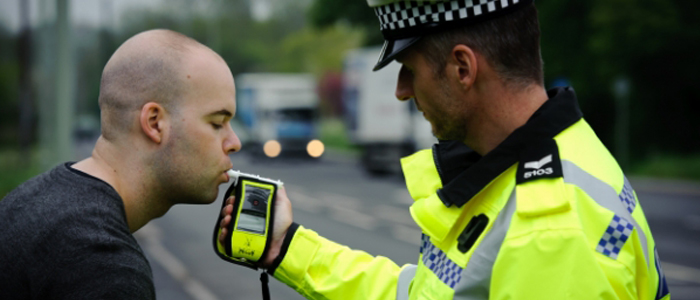PACTS to run £350,000 competition.
The Parliamentary Advisory Council for Transport Safety (PACTS) has been awarded a grant by the Secretary of State for Transport to run a competition to encourage the development of mobile evidential breath testing instruments (MEBTI) which meet Home Office type approval requirements.
Up to £350,000 will be available to encourage manufacturers in this sector to invest in devices which meet the UK standard.
Currently, when a driver provides a positive alcohol screening test by the roadside, the police are required to take the driver back to the police station to obtain an evidential sample. The Government, in its 2011 Strategic Framework for Road Safety, committed to obtaining type approval for roadside evidential equipment. The Home Office type approval standard, which these devices must meet, is the most demanding standard in the world, to ensure a high-level of accuracy and reliability that will stand up to legal challenge and the operational needs of the police. Until now, manufacturers have not invested sufficiently in devices which meet this standard. This competition will be designed to incentivise them to do so.
The competition aims to result in one or more type approved devices which can be operated by police forces throughout the UK by July 2020. It will involve three stages with money awarded to one or more manufacturers at each stage.
David Davies, Executive Director of the Parliamentary Advisory Council for Transport Safety, said:
“PACTS is delighted to have the opportunity to take forward this initiative. PACTS strongly supports efforts to reduce drink driving and the casualties which result. The number of deaths on roads in Great Britain involving illegal levels of alcohol (240 a year) has not changed significantly since 2010, while the number of serious injuries involving alcohol rose in 2016 to its highest since 2012. Evidential roadside testing will greatly improve the effectiveness and efficiency of police enforcement, and we hope will lead to substantial reductions in deaths and injuries.”
Roads Minister Jesse Norman said:
“This new mobile breathalyser technology will enable the police to enforce the alcohol limit more rigorously on those who still choose to drive after drinking, putting others at risk.”
Background
Legislation enabling use of mobile evidential breath testing equipment by the police was an amendment introduced by PACTS vice-chairman Viscount Simon to what became the Serious Organised Crime and Police Act 2005.
PACTS will run the competition with support from the Home Office and the Department for Transport. PACTS will draw up a specification, advertise the competition, evaluate the bids with a panel of specialist advisers, and recommend the winner or winners at each of three stages. £350,000 is available for award by PACTS as a result of a DfT grant. The final payment will be made if type approval is achieved.
This competition does not replace, change or affect any current processes, applications or requirements regarding Home Office type approval that may be underway, or those in the future.
The Defence Science and Technology Laboratory (Dstl) is an Executive Agency of the MOD, run along commercial lines.
For information on the development of drink driving research and UK policy, see PACTS’ report, Fifty years of the breathalyser – where now for drink driving? – also on this website.
COMPETITION DETAILS
The Parliamentary Advisory Council for Transport Safety (PACTS) has been awarded a grant by the Secretary of State for Transport to run a competition to develop mobile evidential breath testing instruments which meet Home Office type approval requirements.
The competition aims to result in one or more type approved instruments which can be operated by police forces throughout the UK by July 2020. It will involve three stages with up to £350,000 awarded to one or more manufacturers at each stage.
Applicants are invited to submit proposed technologies for rapidly quantifying the amount of ethanol in exhaled breath for use at the roadside.
The proposed technology must:
- Quantify ethanol in breath to at least an accuracy of 0.1 µg/100 ml across a minimum range of 0 – 200 µg/100 ml.
- Differentiate between ethanol from deep lung air and the upper respiratory tract.
- Not be influenced by interfering substance including methanol and ethyl acetate.
- Function in a roadside environment subject to electromagnetic frequencies up to 6 GHz.
Requirements Documents for the proposed technology will be released to bidders interested in participating in the competition.
The type approval guide, “A Guide to Type Approval Procedures for Evidential Breath Alcohol Analysis Instruments used for Law Enforcement in Great Britain Version 2.0” is available at www.gov.uk.
PACTS will run the competition with suitable support from the Home Office, the Department for Transport and the Defence Science and Technology Laboratory (Dstl).
This competition does not replace, change or affect any current processes, applications or requirements regarding Home Office type approval that may be underway, or those in the future.
To obtain requirement documents and enter the competition, e-mail david.davies@pacts.org.uk, telephone 020 7222 7732 or write to PACTS, Clutha House, 10 Storey’s Gate, Westminster, London, SW1P 3AY. Applications are due by the final date of Tuesday 31st July. A bidders’ conference will be held on Thursday 12th July from 9am at the Department for Transport, Great Minister House, 33 Horseferry Road, London SW1P 4DR.

